
Rajasthan is a state in northern India. It covers 342,239 square kilometres (132,139 sq mi) or 10.4 per cent of India's total geographical area. It is the largest Indian state by area and the seventh largest by population. It is on India's northwestern side, where it comprises most of the wide and inhospitable Thar Desert and shares a border with the Pakistani provinces of Punjab to the northwest and Sindh to the west, along the Sutlej-Indus River valley. It is bordered by five other Indian states: Punjab to the north; Haryana and Uttar Pradesh to the northeast; Madhya Pradesh to the southeast; and Gujarat to the southwest. Its geographical location is 23°.3' to 30°.12' North latitude and 69°.30' to 78°.17' East longitude, with the Tropic of Cancer passing through its southernmost tip.

The Rajputana Agency was a political office of the British Indian Empire dealing with a collection of native states in Rajputana, under the political charge of an Agent reporting directly to the Governor-General of India and residing at Mount Abu in the Aravalli Range. The total area of the states falling within the Rajputana Agency was 127,541 square miles (330,330 km2), with eighteen states and two estates or chiefships.

Jodhpur is the second-largest city of the north-western Indian state of Rajasthan after its capital Jaipur. As of 2011, the city has a population of 1.03 million. It serves as the administrative headquarters of the Jodhpur district and Jodhpur division. It is historic capital of the Kingdom of Marwar, founded in 1459 by Rao Jodha, a Rajput chief of the Rathore clan. On 11 Aug, 1947 four days prior to the Indian independence, Maharaja Hanwant Singh, the last ruler of Jodhpur state signed the Instrument of Accession and merged his state in Union of India. On March 30, 1949, it became part of the newly formed state of Rajasthan, which was created after merging the states of the erstwhile Rajputana Agency.
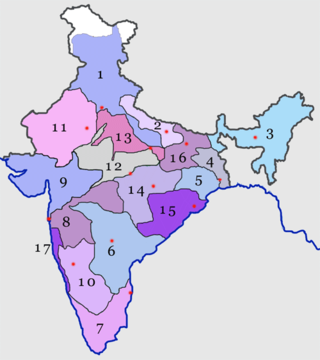
The North Western Railway is one of 19 railway zones in India. It is headquartered at Jaipur, Rajasthan and has 59,075+ employees, 658+ stations and a route length of more than 5,761 kilometres (3,580 mi) across the states of Rajasthan, Gujarat, Punjab and Haryana. NWR operates international rail service Thar Express from Jodhpur to Karachi. This zone is the key enabler of the Delhi–Mumbai Industrial Corridor Project by virtue of running railways 1,500 km long Western Dedicated Freight Corridor.
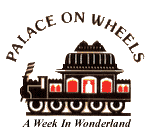
The Palace on Wheels is India's first luxury tourist train launched by the Indian Railways in joint collaboration with Rajasthan Tourism Development Corporation (RTDC) to promote tourism in Rajasthan. The train was launched in 1982. The train has been renamed as Heritage Palace on Wheels.
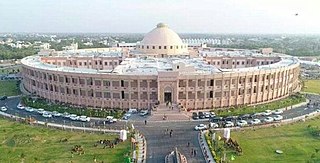
The Rajasthan High Court is the High Court of the state of Rajasthan. It was established on 29 August 1949 under the Rajasthan High Court Ordinance, 1949.

Mohan Lal Sukhadia was an Indian politician, who served as the Chief Minister of Rajasthan state for 17 years (1954–1971). He became chief minister at the age of 38 and was responsible for bringing major reforms and developments in Rajasthan. For this, he is still widely revered as the "founder of modern Rajasthan".

Rājputana, meaning Land of the Rajputs, was a region in the Indian subcontinent that included mainly the present-day Indian state of Rajasthan, as well as parts of Madhya Pradesh and Gujarat, and some adjoining areas of Sindh in modern-day southern Pakistan.
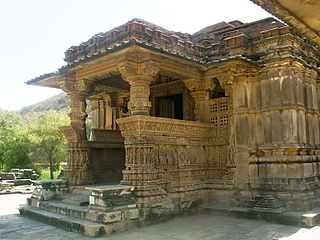
The architecture of the Indian state of Rajasthan has usually been a regional variant of the style of Indian architecture prevailing in north India at the time. Rajasthan is especially notable for the forts and palaces of the many Rajput rulers, which are popular tourist attractions.

Rajasthan is a mineral-rich state and has a diversified economy having agriculture, mining and tourism as its main engines of growth. The state mines produce gold, silver, sandstone, limestone, marble, rock phosphate, copper and lignite. It is the second-largest producer of cement and contributes one tenth of the salt produced in India.

Rajasthan State Road Transport Corporation (RSRTC) is a public transport company which provides bus services in the Indian state Rajasthan. It is headquartered in Jaipur, Rajasthan. The corporation was established by Government of Rajasthan on 1 October 1964 under the Road Transport Act 1950. RSRTC operates ordinary, express and deluxe services. It has 4100 buses in its fleet, 52 depots across Rajasthan and 3 depots outside the state i.e. Indore, Ahmedabad and Delhi. There are around 2230 routes covered which amount to 5437.74 lakh km per year. It carries around 9 lakh passengers per day to their destinations within and outside the state. RSRTC operates services in Rajasthan and adjoining states of Haryana, Punjab, Delhi, Uttar Pradesh, Himachal Pradesh, Madhya Pradesh, Gujarat, Maharashtra, Uttarakhand, Jammu Kashmir and Chandigarh. Ticket reservation is available at all bus stations free of charge. Online ticket facility is available for Air conditioned, Deluxe, Semi-deluxe and express buses through Kiosks in Rajasthan as well as through RSRTC mobile application.

The history of human settlement in the western Indian state of Rajasthan dates back to about 100,000 years ago. Around 5000 to 2000 BCE many regions of Rajasthan belonged as the site of the Indus Valley Civilization. Kalibangan is the main Indus site of Rajasthan, here fire altars have been discovered, similar to those found at Lothal.

The culture of Rajasthan includes many artistic traditions that reflect the ancient Indian way of life. Rajasthan is also called the "Land of Kings". It has many tourist attractions and facilities for tourists. This historical state of India attracts tourists and vacationers with its rich culture, tradition, heritage and monuments. It also has some wildlife sanctuaries and national parks.

Rajasthan is one of the most popular tourist destinations in India, for both domestic and international tourists. Rajasthan attracts tourists for its historical forts, palaces, art and culture with its slogan "Padharo Mhare Desh " The capital city, Jaipur, also known as Pink City, is a very popular tourist destination and is a part of the Golden Triangle. The Walled City of Jaipur is only the second Indian city to be recognized as a UNESCO World Heritage Site, after Ahmedabad.
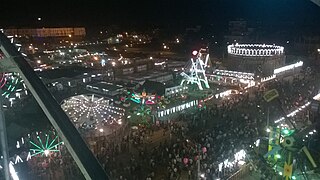
Kajali Teej Mela is an annual fair celebrated in the historic city of Bundi, located in the Hadoti region of the Indian state of Rajasthan. The fair is organised during the Hindu month of Shravan (July–August), specifically on the third day of the bright half of the lunar month, known as Teej.















